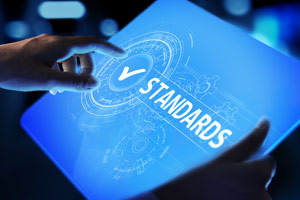Anyone importing products and/or selling them to consumers as part of a business venture must, among other considerations, ensure their safety.
The general safety requirements in Germany, which apply equally to manufacturers and importers, are defined by the Product Safety Act, in German called the Produktsicherheitsgesetz (ProdSG). This stipulates that a product may only be launched on the German market if there is no danger to the safety and health of persons, if the product is used as intended or in a manner that would appear obviously correct. Therefore, importers should first of all check whether their products could potentially pose any safety risks.

Importers should check whether their product is subject to one of the eleven Product Safety Regulations.
Strict safety requirements for certain products
In the next step, importers should check whether their product is subject to one of the eleven Product Safety Regulations, known as Produktsicherheitsverordnungen (ProdSV) in German. The regulations impose special or additional safety requirements on certain groups of products, such as the 9th ProdSV, which regulates the sale (legally more correct: “making available on the market”) of machinery. These special sectoral rules take precedence over the Product Safety Act.
Is the product subject to a CE directive?
It is essential that importers also determine whether their product may be subject to mandatory CE marking. When a product does not bear the CE mark, even though a legal provision requires it to be affixed, § 7 (2) ProdSG prohibits it from being made available on the market.
Whether the respective product is subject to the requirements of a CE directive and is therefore subject to labelling can be checked on the website of the European Commission. By attaching the CE mark to the product and signing an EU Declaration of Conformity, the importer ultimately declares that their product complies with the applicable regulations.
Only when the product complies with all relevant product safety regulations may the importer import and distribute it on the European market.
Consequences of an infringement of product safety rules
Compliance with product safety requirements is not voluntary. In the event of infringements of a Product Safety Regulation or an EU regulation, substantial fines may be imposed.
However, there are a number of other European and national regulations that must be complied with. These include the Packaging Act and the REACH Regulation, which regulates the registration, evaluation, authorisation and restriction of chemicals. Legislation doesn’t make it easy for importers and manufacturers. Our attorneys for customs law are always at your disposal to answer any questions you may have.
Continue reading:
Double Sales Tax on Imports of Goods into the EU
Comprehensive advice on customs criminal law and customs administrative offenses




